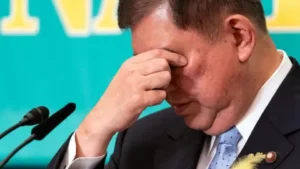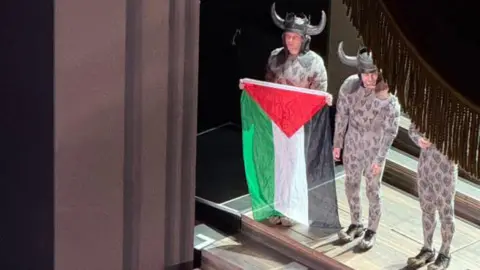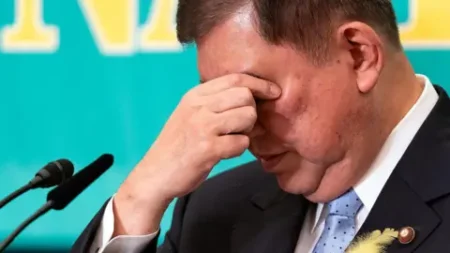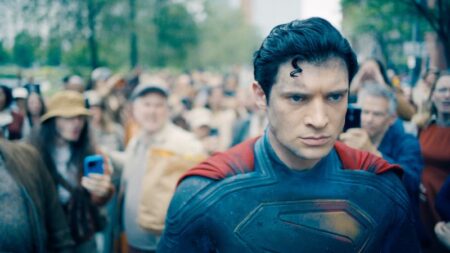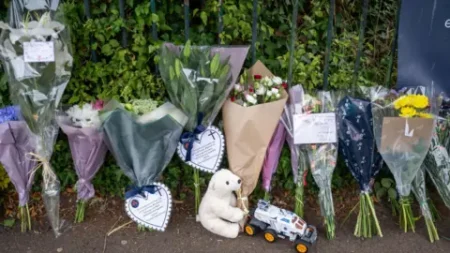On the evening of July 20, 2025, a remarkable and politically charged incident unfolded at the prestigious Royal Opera House in Covent Garden, London. During the curtain call of the opera “Il trovatore,” a prominent work composed by Giuseppe Verdi, a cast member defiantly unfurled a large Palestinian flag on stage. This act of protest, occurring in a renowned venue steeped in tradition and culture, sparked immediate reactions from both the audience and the venue officials.
The dramatic display captured on video shows a brief altercation, highlighting the tensions surrounding the performer’s demonstration. As the audience continued to applaud the performance, an official from the Royal Opera House attempted to remove the flag from the protestor’s grasp. Despite the official’s efforts, the cast member resiliently held onto the flag, making a bold statement that resonated with many in the theater, amid ongoing political unrest related to the Israel-Gaza conflict.
In response to this unexpected incident, the Royal Ballet and Opera released a statement denouncing the act, describing it as “completely inappropriate for a curtain call.” They emphasized that the display was a spontaneous and unauthorized action that did not receive prior approval from the institution. The venue reiterated its commitment to political impartiality, distancing itself from the message of the protest and expressing regret that such an event transpired under their roof.
The timing of this protest coincided with a period of heightened emotions surrounding the Israel-Gaza war, an issue frequently symbolized by the Palestinian flag at various demonstrations across the globe. In various videos recorded during the incident, the brave cast member can be seen quietly displaying the flag, occasionally shaking it in a subtle yet impactful manner. While other performers continued to engage with the audience, oblivious to the unfolding drama behind them, some on-stage officials were caught on camera vocally instructing the protesting artist to cease their actions. The protestor, however, remained undeterred, choosing to maintain their stance even as the tension escalated.
Eyewitness accounts from attendees are particularly illustrative of the profound impact of the moment. One audience member shared their experience on social media, stating, “Extraordinary scenes at the Royal Opera House tonight. During the curtain call for Il trovatore, one of the background artists came on stage waving a Palestine flag. Just stood there, no bowing or shouting. Someone offstage kept trying to take it off him. Incredible.” This testimony underscores the unique intersection of art and activism, particularly as it plays out in one of the world’s most esteemed cultural institutions.
As “Il trovatore” concluded its successful 11-night run at the Royal Opera House, the incident remained a focal point of discussion and reflection. The identity of the protesting cast member, however, has not been disclosed, leaving audiences and the media fascinated by the unnamed individual’s stand for their beliefs on such a significant stage.
This event extends beyond mere theatrics, framing a larger dialogue on the role of art in political expression. Such actions remind us that theater is not merely an escape from reality but a space capable of confronting important social issues. The Royal Opera House, while an epitome of high art, has inadvertently found itself entwined in a global narrative, highlighting the complex relationship between performance, identity, and activism.

